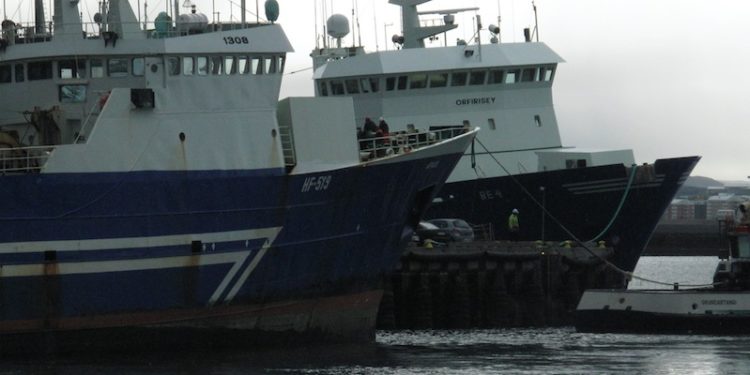Iceland’s seamen’s strike has come to an end with an agreement reached between owners’ federation SFS and unions representing engineers and some crews. The fleet is making its way back to sea as proposed strike action has been postponed or called off.
The Grindavík Seamen’s and Engineers’ Union withdrew its mandate from seamens’ union SSÍ (Sjómannasamband Íslands) to negotiate on its behalf. It has since reached an agreement with SFS on working conditions, including a top-up clause for longline fishermen.
A second union representing crews, Sjómannafélag Íslands, declined the original offer and has also reached agreement with SFS with some details of the original offer amended.
The memberships of the unions that have signed agreements with SFS have yet to be balloted to confirm – or not – the results of negotiations, and there are no guarantees that the memberships will back the agreements when this takes place next month.
According to SFS, while the unions representing crews had ended negotiations last week, it had been clear that many of the issues had been successfully addressed, including reaching a settlement on fish pricing on the basis that a rule should be instituted that in the cases of landing to a related company (in the cases of vessels and shore production being in common ownership) fish landed should be priced at 80% of the market rate. For pelagic fisheries, increased transparency is part of the agreement. Several other key issued were dealt with, including ending from 1st December 2023 the newbuild rule that levies a percentage of crew shares on new vessels.
‘It is a positive step that parties have been able to agree better terms for seamen, and SFS hopes that the unions’ members will accept the offered agreements,’ commented an SFS spokesman.
The terms of the latest agreements still have to be presented to the various unions’ memberships and validated with a ballot next month. If the crews vote against the agreement, as they did earlier this year, Icelandic fishermen will once again be without agreements with vessel owners and strike action may again become a possibility.









